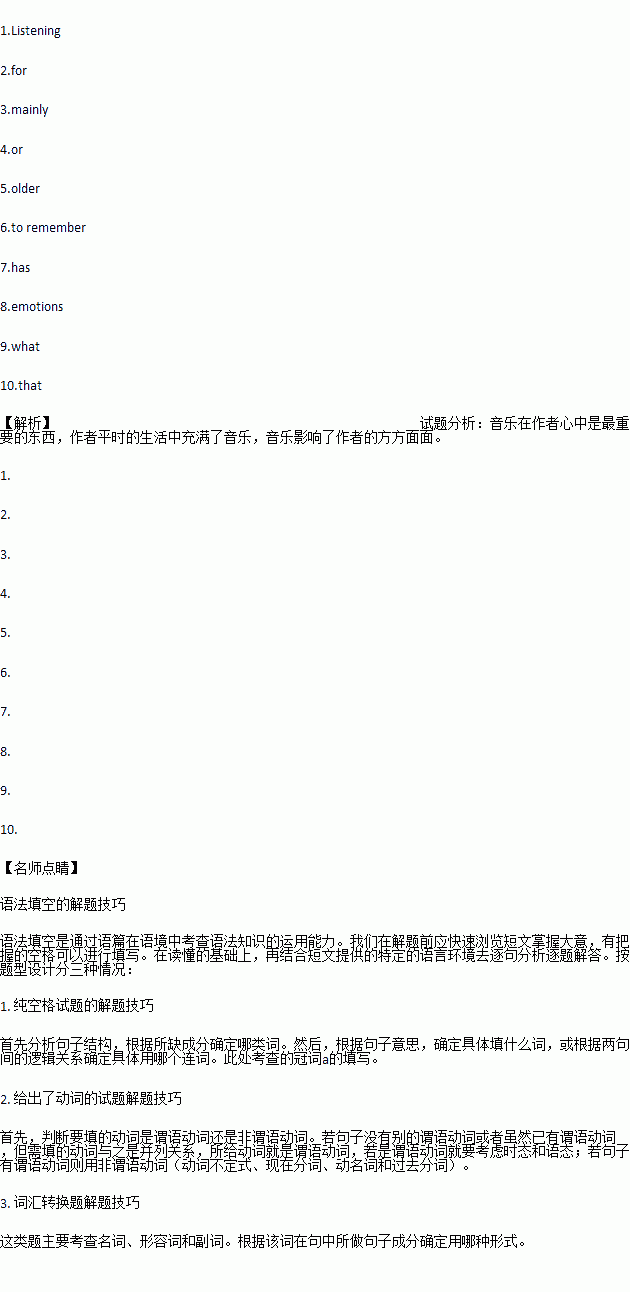
Global Positioning Systems are now a part of everyday driving in many countries.These satellite-based systems provide turn-by-turn directions to help people get to where they want to go.But,they can also cause a lot of problems, send you to the wrong place or leave you completely lost.Many times,the driver is to blame.Sometimes a GPS error is responsible.Most often,says Barry Brown,an expert in human-computer interaction,it is a combination of the two.
We spoke to Mr Brown by Skype (网络电话软件).He told us about an incident involving a friend who had flown to an airport in the eastern United States.There he borrowed a GPS-equipped car to use during his stay.Barry Brown:“And they just plugged in an address and then set off to their destination.And,then it wasn't until they were driving for thirty minutes that they realized they actually put in a destination back on the West Coast where they lived.They actually put their home address ia So again,the GPS is kind of 'garbage in garbage out'”.
Mr Brown says this is a common human error.But,he says,what makes the problem worse has to do with some of the shortcomings,or failures,of GPS equipment.Barry Brown:“One problem with a lot of the GPS units is they have a very small screen and they just tell you the next turn.Because they just give you the next turn,sometimes that means that it is not really giving you the overview that you would need to know that it's going to the wrong place.”
Barry Brown once worked on a project with Eric Laurier from the University of Edinburgh.The two men studied the effects of GPS devices on driving by placing cameras in people's cars.They wrote a paper based on their research.It is called “The Normal,Natural Troubles of Driving with GPS”.It lists several areas where GPS systems can cause confusion for drivers.These include maps that are outdated,incorrect or difficult to understand.They also include timing issues related to when GPS commands are given.
Barry Brown says to make GPS systems better we need a better understanding of how drivers,passengers and GPS systems work together.
1.In Paragraph 2,Mr Brown mentioned his friend in the conversation to .
A.build up his own reputation
B.laugh at his stupid friend
C.prove the GPS system is only garbage
D.describe an example of human error
2.Which of the following statements would Barry Brown most likely agree with?
A.GPS units are to blame for most GPS service failures.
B.We should introduce higher standards for the driving license.
C.Cameras are urgently needed to help improve GPS systems.
D.Drivers,GPS systems and passengers should unite to improve GPS systems.
3.What is Mr Brown's attitude towards GPS?
A.Unconcerned. B.Prejudiced. C.Objective. D.Critical.
4.What would be the best title for the text?
A.Driving with GPS can be difficult
B.Driving confusions can be caused by small screens
C.Driving without GPS should be much more convenient
D.GPS equipment in driving:to be deserted or improved?


